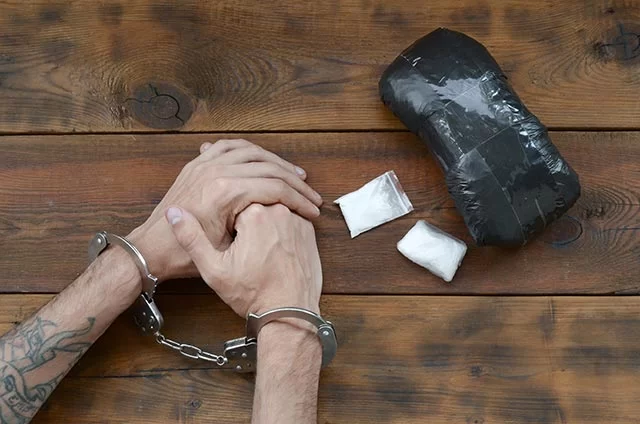- can-criminal-charges-be-expunged
- understanding-expungement-law
- steps-to-clear-criminal-record
- real-case-expungement-story
- professional-guidance-for-expungement
1. Can Criminal Charges Be Expunged from Your Record?
The idea of clearing criminal charges from your record is a powerful one, especially if you’re looking for a fresh start in life. Expungement is the legal process that allows certain criminal charges or convictions to be removed from your criminal record, making them invisible during background checks for jobs, housing, or even school admissions. But not everyone knows what “expungement” really means—or if their situation qualifies. Understanding the ins and outs of expungement can change the course of someone’s future, opening doors that were once closed due to a past mistake.
The process of having criminal charges expunged isn’t automatic, and it can be quite different depending on where you live and what charges you faced. In many places, only certain non-violent offenses, dismissed cases, or charges that didn’t result in a conviction are eligible for expungement. More serious offenses, such as violent crimes or felonies, are often excluded, but there are exceptions. The key is knowing the rules in your jurisdiction and seeking the right advice.
2. Understanding Expungement Law: Key Factors and Limitations
Expungement law can feel like a maze. Every state or region sets its own guidelines, and the details matter. For example, some laws allow expungement only if you completed probation or waited a certain period without new offenses. Others might require that the charge ended in acquittal or dismissal.
2.1 The Difference Between Expungement and Sealing
Many people confuse expungement with sealing a record, but they aren’t quite the same. Expungement typically erases the charge as if it never happened, while sealing hides it from most background checks but leaves the record intact for law enforcement or government agencies. Both offer a level of privacy, but true expungement is the clean slate many hope for.
2.2 Common Eligibility Criteria for Expungement
Eligibility for expungement often depends on the type of offense, the outcome of the case, and your criminal history. For instance, someone with a single misdemeanor that was dismissed after a diversion program might have a strong chance. By contrast, multiple convictions or serious felonies make expungement much more difficult, though not impossible in rare cases. The law is constantly evolving, so it pays to stay updated or consult a professional.
3. Steps to Clear Your Criminal Record: What to Expect
If you’re wondering how to get criminal charges expunged from your record, it usually involves a series of important steps. The first step is to gather all relevant documents—court records, police reports, and any proof that you’ve met sentencing requirements. Next, you’ll likely need to file a formal petition or application with the court. This often includes a detailed explanation of why you believe expungement is justified.
3.1 Navigating the Court Process
Once your petition is filed, the court may set a hearing. Here’s where many people feel overwhelmed, but preparation makes all the difference. Judges may ask about your criminal record, your behavior since the offense, and how expungement could benefit your life. It’s your chance to show personal growth and genuine remorse, which judges often consider carefully.
3.2 What Happens After Expungement?
If the court approves your request, your criminal record will be expunged or sealed, depending on the law. For most people, this means the charge won’t appear in future background checks, making it easier to find work, housing, or even pursue professional licenses. But it’s wise to double-check that all agencies have updated your record—sometimes old entries persist due to clerical errors.
4. Real Case: Expungement Brings a Second Chance
Let’s talk about a real-world example that made headlines not long ago. A young professional—let’s call him Mark—was charged with a minor drug offense in college. He completed a court-ordered diversion program and went on to graduate with honors. Years later, he found himself turned down for jobs despite his qualifications, all because of that old charge.
Mark decided to seek expungement with the help of a legal expert. The process wasn’t simple—he had to gather documents, write a statement, and attend a court hearing. But with solid evidence of his rehabilitation and community service, the judge agreed to expunge his record. Today, Mark has a fulfilling career and is proof that the expungement process can truly give people a new beginning.
Stories like Mark’s are a reminder that your past doesn’t have to define your future. If you’re dealing with the impact of a criminal charge, it’s worth exploring whether expungement is an option for you. Fred Miller Lawyer is always ready to help clients find out if their records can be cleared, offering honest guidance at every step.
5. Professional Guidance for Expungement: Why Expert Help Matters
Navigating the expungement process alone can be daunting, especially when legal language and requirements are complicated. While many people try to handle things on their own, mistakes or missing paperwork can derail the process. That’s why seeking professional help can be invaluable.
5.1 The Benefits of Legal Assistance
Experienced attorneys know the nuances of expungement law and can spot eligibility issues early on. They help gather documentation, draft persuasive petitions, and represent you in court if needed. Most importantly, they can give you a realistic picture of your chances and what to expect.
5.2 Why Choose the Right Legal Support
For anyone seeking to clear their criminal record, choosing a trusted professional is crucial. At Fred Miller Lawyer, you’ll find a team dedicated to helping clients put their past behind them and move forward with confidence. Whether you’re just starting the process or need help with a complicated case, the right support can make all the difference.
Clearing criminal charges from your record isn’t just about erasing a mistake—it’s about restoring your reputation and giving you back control over your life. Taking that step can open doors you never thought possible.


 ray nardo
ray nardo rice mcgowan law firm
rice mcgowan law firm horwitz horwitz & associates reviews
horwitz horwitz & associates reviews james b lewis attorney
james b lewis attorney oppenheim law
oppenheim law david yergey attorney orlando
david yergey attorney orlando